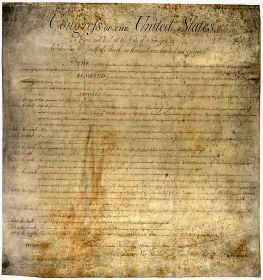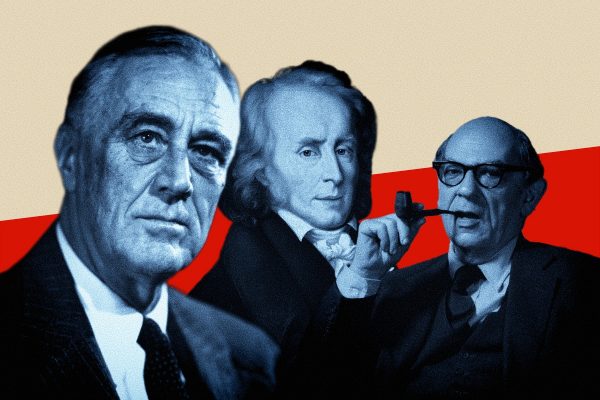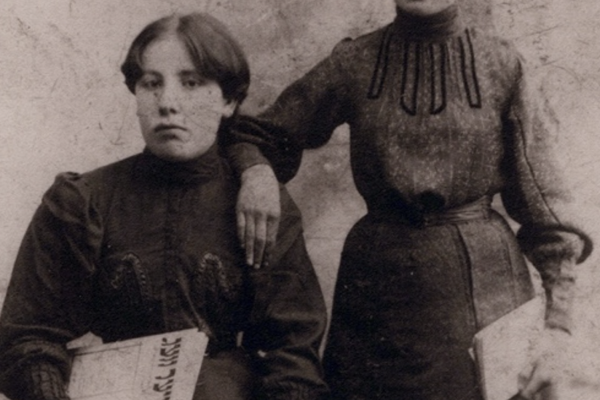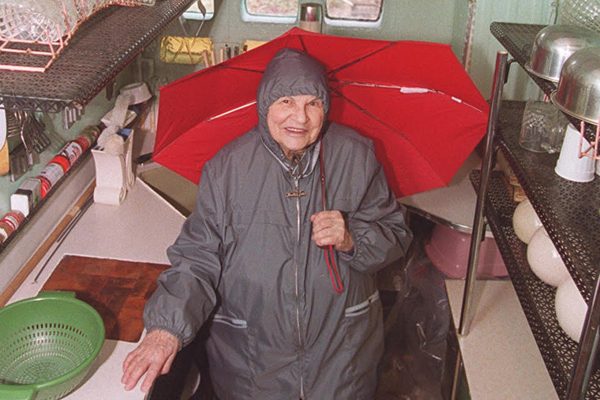Editors's Note: Read our May/June forum, "Saving Privacy," led by Reed Hundt.
A former Chair of the Federal Communications Commission under the first President Clinton. A self-described “born litigator” with a love for the anti-majoritarian Bill of Rights. A JD-PhD computer scientist who created his own degree program and convinced Stanford to pay him to do it. A venture capitalist who needs a haircut. Wrangled and emceed by a political philosopher and co-editor of Boston Review. I know there is a “…walked into a bar” joke in here somewhere. But I’ll play it straight and tell you about last week’s Saving Privacy panel at Stanford’s Center for Ethics in Society with this ensemble.
I’ve known Reed Hundt—the former Chair of the FCC—since 1995. I met him when he spoke at the Harvard Business School in a class called “The Coming of Managerial Capitalism.” Reed’s comparative advantage, then as now, is thoughtful, honest, clear articulation of complex ideas. His opening remarks for the panel laid a robust cornerstone for discussion. The ideas that stood out most to me were these:
Our Bill of Rights is being rewritten. Technology, business, and government (specifically law enforcement and national security) are changing the 482 words in the first ten amendments to the U.S. Constitution. Reed presented two provocative directions. The first redraft (see figure A, below) seems to describe reality as revealed by Edward Snowden. The alternative (see figure B, below) presents a sharp course correction, amplifying the civil liberties at the heart of the original Bill of Rights. Implicit in the stark differences: speak up and choose.
Slides from Reed Hundt’s presentation, “Make No Secrets About It,” November 11, 2014 at Stanford.
This has all happened before. Reed reminded us that when technology gives humans power, and circumstances give them opportunity, humans use the power. Examples from just late-twentieth century U.S. history range from something out of Senator Palpatine’s playbook (Nixon’s Enemies) to an ambitious crime-fighter’s Christmas wish list (FBI Director Louis Freeh wanted CALEA powers over telco’s before the law permitted it). Of course it is not news that abuse of power is close to the surface of human nature. So these cases didn’t shock me. I am consoled that today’s fights over surveillance and privacy are not unique in our history. But they are different in degree: vastly more information moving more quickly than anyone, any court, or any law had in mind.
We have many governments: federal, state, local; judicial, legislative, executive; maybe even thousands more large and small if you consider private companies in the mix. If one flavor of government is behaving badly, another may offer a counterbalance. Everyone can have a favorite flavor when it comes to civil liberties and national security. If you aren’t happy with the choices made by executive agencies, Reed reminded us, there are legislative and judicial actions to rally around. And let’s not forget the benevolent dictatorships in our economy: unilateral action by CEOs can move more resources more quickly than any other flavor of governance.
With Reed’s opener as a guide, Jennifer Granick, Jonathan Mayer, and I gave short follow-up remarks. Each of us pushed in a unique direction. Jennifer rightly reminded us of the anti-majoritarian spirit of the Bill of Rights and of human beings’ innate weakness at assessing risk. She gave a sobering quantification of the false-positives problem of trying to sort the entire population into “good” and “suspect” groups just based on their digital exhaust. Jonathan grounded the group in the technical state of the art regarding encryption and application of technology in law enforcement and cyber-defense. I urged private companies to acknowledge users’ property rights in and privacy expectations for their data in the user agreement and terms of service. When technology companies fail to do so, they contribute to the 4th Amendment ambiguity around digital “papers and effects.”
Five days after the panel, a few thoughts really stick with me.
Sometimes the right thing happens for a surprising reason. Before CALEA, the telcos didn’t want to install Freeh’s magic boxes because they cost too much. I work with founders who encrypt user data because they think it’s neat technically to do that. Technology leaders see an existential financial threat from surveillance filing suits, encrypting, and adapting in countless ways. It might or might not be for love of the Constitution, but I’ll take it.
The patriots of the national security establishment are doing their jobs with gusto. It is best if we all follow their lead. Jennifer’s job is to advocate protection of civil liberties. Jonathan’s is to lead research and teaching at the intersection of the law and computer science. My job is to seed companies and remove obstacles to their growth. When we show up to do our jobs nowadays, we bump into the NSA and its colleague institutions. Collision avoidance is no option. The good news is our system can handle it. Adversarial relationships between differing positions are baked into our political, legal, and economic systems.
The United States is a self-cleaning oven and I am grateful for it. Reed Hundt’s views on privacy and surveillance would be gifts to his audience under any circumstance. That he is an alumnus of the senior ranks of our government adds something special, I think. His first-hand accounts of how our leaders struggled with terrorism, communications technology, and civil liberties made me feel more optimistic, not less. Our system contains values and freedoms that, like solvents over time, corral and break up the worst chunks of our human nature. Faster would be nice. But if my choices are “slow and bumpy” or “never,” I’ll take option A.
In a delightful twist, the electronic surveillance we had all agreed to that evening—a video and audio recording—didn’t end up happening. I have an email in to the NSA to see if we can borrow their copy to post. (Not really.) So rather than recap more details on the content, I will simply encourage you to follow Jennifer (@granick), Jonathan (@jonathanmayer), Reed (@rehundt), and Joshua (@jcohen570) on Twitter. If the NSA recording surfaces, I will let you know.








